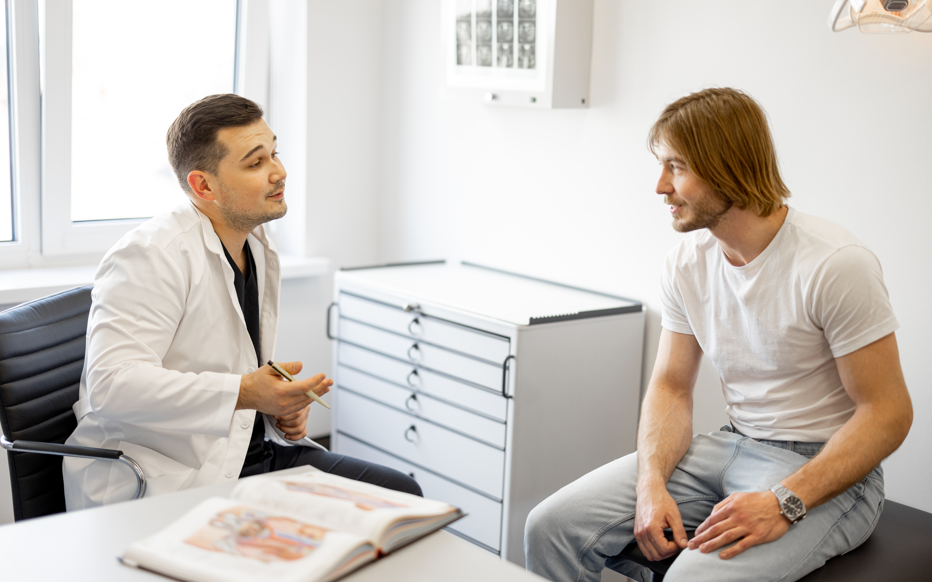Our bodies undergo many changes as we age, and it’s natural to experience certain health issues. One area that can be particularly concerning for many people is urological health.
To treat this issue, you can count on urologists. They are medical professionals who specialize in diagnosing and treating conditions related to the urinary tract and male reproductive system.
These urology experts are equipped to manage a wide range of urological conditions, from common issues like urinary tract infections to more complex disorders such as kidney stones and prostate cancer.
While it may be uncomfortable to discuss, seeking medical attention is essential if you’re experiencing symptoms that may indicate a need to see a urologist. In this blog, we’ll cover the must-know facts about these specialists. What do they do, which conditions do they treat, and when it’s time to see one. Keep reading to find out.
What is a Urologist?
A urologist, as explained by the NHS, is a medical professional who specializes in diagnosing and treating conditions of the female urinary system and the male genitourinary tract.
Also referred to as urological surgeons, they undergo specialized training to identify and manage a wide range of urological conditions, including bladder and kidney problems, prostate issues, and male infertility.
Urology specialists are skilled in performing various diagnostic tests and procedures to aid in identifying and managing urological conditions. They may utilize imaging tests such as ultrasounds, CT scans, and MRIs to obtain a detailed view of the urinary tract and reproductive system. Additionally, they may conduct minimally invasive procedures such as cystoscopies and biopsies to assist in diagnosis and provide treatments for urinary tract, prostate, kidney, and bladder issues.
A urologist is capable of treating a diverse range of urological conditions for patients of all ages, including:
- Kidneys and ureters: for stones, tumours, infections and trauma
- Bladder: stones, tumours, congenital disorders, incontinence and infection
- Prostate: tumours, obstruction, difficulty passing urine and infections
- Urethra: strictures and trauma
- Male reproductive organs: impotence, tumours, congenital disorders, infection, sterilisation and male infertility
Signs You Should See a Urologist
The range of conditions covered by urology may surprise many people. This field impacts both men and women at every stage of their lives, from childhood to old age.
While some minor urologic problems can be treated by your primary care doctor, it’s important to recognize the following symptoms that may warrant a visit to a urologist or a urologic clinic:
- Pain or discomfort during urination
- Blood in the urine
- Frequent urination
- Incontinence or leakage
- Pain in the lower back or abdomen
- Erectile dysfunction
- Testicular pain or swelling
Additionally, The American Cancer Society recommends that men over the age of 50 have an annual prostate exam to screen for prostate cancer. Women who are experiencing symptoms such as pain during sexual activity or frequent urinary tract infections may also benefit from seeking the expertise of a urology professional.
Learn more about Prostate Cancer Prevention
Routine Check-Ups and Screenings with a Urologist
While it’s important to seek urology care if you’re experiencing symptoms, it’s also a good idea to schedule routine check-ups and screenings. The Urology Care Foundation recommends visiting a urologist as your first step if your symptoms or condition involve the urinary tract or male reproductive system.
An appointment with a urologist typically includes a physical exam, blood tests, and imaging techniques, depending on the reason for the visit. However, urologic tests encompass more than just blood tests; urine tests or other analyses may also be required at times.
Whether you’re dealing with kidney problems, kidney stones, or inflammation of the prostate, a urologic check-up allows you to stay one step ahead of potential severe conditions.
As advised by the Prostate Center Europe, a urologic check-up usually include the following:
- Ultrasound of the prostate, bladder and kidneys
- Internal examination
- Blood and urine tests
- Extensive consultation with the doctor (45 min)
- Consultation about the findings and possible treatments
Early detection and treatment are key to maintaining good urological health. If you have any symptoms or concerns about your urinary or reproductive system, don’t hesitate to schedule an appointment with a urologist and inquire about urology treatment.
At DaVinci Health Clinic, we offer urology preventive services to help you diagnose and manage any issues you may be experiencing and provide the care you need to stay healthy.
Our medical staff will provide you with the best guidance, diagnosis and treatment in several specialities, including urology services. Visit our website, find a doctor and book your appointment. Keeping an eye on your health is the best way to self-care.


